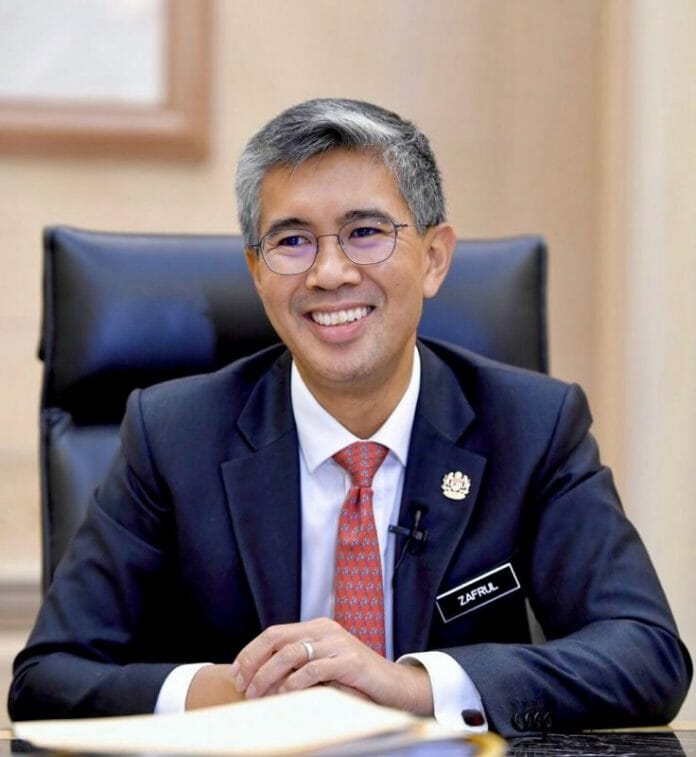Challenging times have almost been a ‘staple’ across the globe where governments were forced to face two arduous challenges simultaneously, between saving lives and livelihoods.
For Malaysia, there are formidable economic indicators showing a stronger growth of 5% in the first quarter and 8.9 percent in the second quarter of the year. This is supported by various strategies and initiatives under the Twelfth Malaysia Plan, 2021-2025 (RMKe-12), Budget 2022, the economic stimulus package and the reopening of national borders at a time of many challenges with recovery still being the main objective.
The much-anticipated Budget 2023 is expected to maintain Malaysia’s current economic recovery momentum and build long-term resilience.
Finance Minister Tengku Datuk Seri Zafrul Abdul Aziz said Budget 2023, under the theme of ‘Strengthening Recovery, Building Resilience and Driving Reforms’ will focus on four mail pillars which are the People, Business, Economy and Government Institutions.
The government basically focuses on presenting a recovery budget and hopefully the nation is ready to rise amidst some constrains within the economy, and in terms of industry, life and jobs — especially for those who have been severely affected by the Covid-19 pandemic.
Tengku Zafrul said: “We are facing high living challenges due to inflation rates, although Malaysia has recorded one of the lowest rates globally, besides supply and food chain disruptions, due to what is happening in the world’s geo-politics scenario.
B40 group
He added the focus will also be on continuing government assistance to the B40 group as the category which have been most affected by the spread of Covid-19 apart from the challenge of the increasing cost of living.
Environmental, Social And Governance Concerns
“The government will continue to prioritise sustainability and ESG (environmental, social and governance concerns) through our whole nation approach,” he added.
Tengku Zafrul highlighted that climate disasters have been occurring around the globe, as well as on home soil. At end-2021, the country saw one of the worst floods in the nation’s history.
He said these climate change impacts have exposed socio-economic structural faults, which are critical to saving lives and livelihoods.
“The silver lining from this dramatic turn of events in climate views is the resulting sense of urgency and the increased awareness of the importance of embracing sustainability and ESG principles to build long-term climate and socio-economic resilience,” he said.
“The Malaysian government is resolute in its commitment to implement development projects and programmes that prioritise ESG principles or are aligned to the UNSDG (United Nations Sustainable Development Goals). Furthering the goal of becoming a carbon neutral nation by as early as 2050, Malaysia will work closely with Asean countries with similar visions through the Asia zero-emission community,” he added.
“We are not only doing this because it makes better fiscal sense in the long term, but also because it is the right thing, for we must never fulfil current needs at the expense of our children’s future. In striking that balance, the MOF has also tried to be reformist in our approach to investing in key structural challenges and building the resilience of our nation, as well as the competitiveness of our business ESG considerations,” Zafrul said, adding companies have their role to play in this ecosystem and the ball is on their field to adopt ESG considerations to remain competitive locally and internationally.
“There is a wealth of data which shows that companies focusing on ESG issues have managed to reduce costs, increase employee productivity, reduce risks and create more business opportunities.
In this light, the Finance Minister said Budget 2023 will prioritise environmental sustainability and sustainable financing of the economy.
He said the government will also issue up to RM10 billion in sustainability sukuks, which will begin in the fourth quarter of this year, to fund eligible social and environmental-friendly projects under the current national budget.
“The finance ministry has also enhanced the government’s green procurement policy to encourage the use of green products and services and aims to incorporate environmental consideration in all government-based procurements.
National Financing Framework
Tengku Zafrul said the finance ministry has issued six public consultation papers for Budget 2023 national to finalise an integrated national financing framework, which is tailored to the country’s needs,” he said. “We are also developing a more sustainable framework for the financing sector.”
He said the ministry hopes to collaborate with the private sector to ensure the economy flourishes in a sustainable manner – as the government is committed to balancing economic growth with environmental sustainability, adding that Putrajaya would protect the needs and livelihoods of the public, especially the underprivileged.
Job Loss
It will do so by facilitating employment opportunities in new and transitional industries and by providing opportunities for reskilling and investing in alleviating energy poverty, especially in rural areas, as well as making clean affordable energy more accessible to all.
Tengku Zafrul also pointed out that the transition to the green agenda needs to be done gradually as rapid changes can potentially bring negative spill over effects such as job losses especially in Asean countries.
Citing an International Labour Organisation report, he said Southeast Asia could potentially lose around half a million jobs in fossil fuels by 2050 but could also gain around five million jobs, mainly in the renewable energy (RE) sector.
“Job losses due to the shift to a green economy, as well as indirect job losses related to the industry will have a significant negative impact on labour markets,” he said.
Economy Now Different From Times Of 1997-98 Asian Financial Crisis
Addressing the Dewan Rakyat on Tuesday, Tengku Zafrul restrained concerns that the country might be witnessing a severe collapse of the economy in the same vein as the 1997 Asian financial crisis, saying the nation’s fundamentals are in a stronger position today.
The Finance Minister said: “The country’s economic position today is far different from (the 1997 crisis). Our economic fundamentals and financial system are very different. This is a result of the various economic and financial reforms implemented following the Asian financial crisis, including a more diverse domestic economic structure that is supported by a good financial system model and strong external position.”
He said this in response to a question from Wong Hon Wai (Bukit Bendera-Pakatan Harapan) on whether the country is headed towards a crisis following the crash of the ringgit against the US dollar, spiralling inflation and increasing national debt.
Zafrul said generally, an economic crisis is defined as when a country faces a dip in gross domestic product dips, increase in unemployment, closure of businesses and high bad debts that would have a negative impact on the financial institutions.
Budget 2023 will be tabled on Oct 7.
The Federal Budget, also known as the Supply Bill, is a major state financial plan for the upcoming fiscal year. It is presented annually by the government to identify proposed government revenues and spending and forecast economic conditions for the period.
The federal budget includes the government’s estimates of revenue and spending and may outline new policy initiatives.









